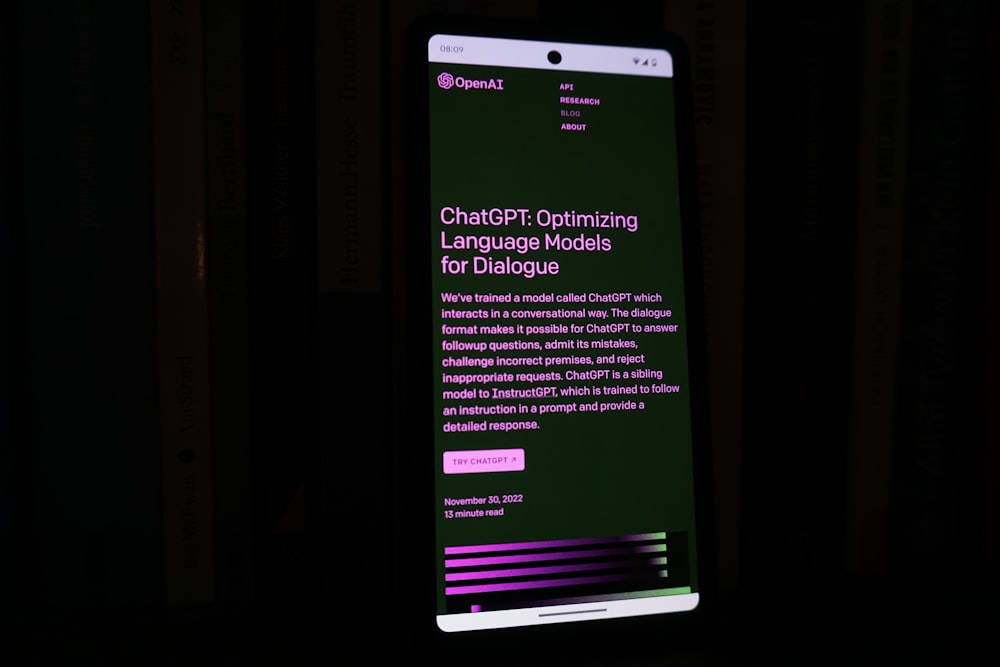Italy has become the first Western country to block ChatGPT, a popular chatbot powered by artificial intelligence (AI). The country’s data protection watchdog said it's opening an investigation against OpenAI, the company behind the massively popular chatbot due to data privacy concerns after ChatGPT experienced a data breach involving user conversations and payment information. ChatGPT can pretty much answer any questions, pass exams and even code a whole website for you. Hundreds of millions of people have used ChatGPT since its launch in November 2022, making it the fastest-growing consumer application in history, according to a UBS study.
Read Also: Microsoft Research - Foundation models and the next era of AI
But there have been growing concerns over the potential risks of AI, including its threat to wipe out many jobs and also spread misinformation. Last week, major figures in technology, including Twitter boss Elon Musk, called for these types of AI systems to be suspended amid fears the race to develop them has become out of control.
Will other countries soon follow suit and ban ChatGPT?
After Italy's decision to restrict access to the chatbot, the European Consumer Organisation (BEUC) is calling on all authorities to investigate all major AI chatbots. ChatGPT, for instance, is already inaccessible in a number of countries, including China, Iran, North Korea, and Russia. "Consumers are not ready for this technology. They don't realise how manipulative, how deceptive it can be," said Ursula Pachl, Deputy Director of the BEUC. "They don't realise that the information they get is maybe wrong. I think this incident with ChatGPT is very important. It's kind of a wake-up call for the European Union because even though European institutions have been working on an AI Act, it will not be applicable for another four years. And we have seen how fast these sorts of systems are developing," she told Euronews. The European Commission is currently debating the world's first legislation on artificial intelligence called the AI Act. But it looks like it may not be inclined to ban AI systems, according to the European Commission Executive Vice President, Margrethe Vestager. "No matter which tech we use, we have to continue to advance our freedoms and protect our rights," she posted on Twitter. "That’s why we don’t regulate AI technologies, we regulate the uses of AI.
Let’s not throw away in a few years what has taken decades to build". According to the BBC, the Irish Data Protection Commission and the UK data regulator have also said they will start looking closer at these AI chatbots especially when it comes to data protection. Germany could follow in Italy's footsteps by blocking ChatGPT over data security concerns, the German commissioner for data protection told the Handelsblatt newspaper. French privacy regulators have also reached out to their Italian counterpart to find out more about the basis of the ban.

Dan Morgan, Europe Government Affairs Director at cybersecurity ratings provider Security Scorecard, told Euronews this move signals the importance of regulatory compliance for companies such as OpenAI in Europe. "I think the clear implications for this is that you can't avoid regulation if you want to operate in the EU," he said. "Businesses must prioritise personal data protection and comply. No matter how important the product, you know, compliance with regulation in Europe is not an optional extra". The Italian watchdog said the company behind ChatGPT has 20 days to address the data protection issues or pay a fine of €20 million or up to 4 per cent of annual revenues. The CEO of the company, Sam Altman, said on Twitter that OpenAI was deferring to "the Italian government" on the issue. "Italy is one of my favourite countries and I look forward to visiting again soon," he added.



